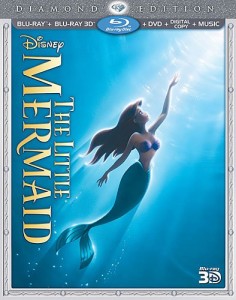The Court Jester
Posted on December 13, 2002 at 5:17 am
“Life could not better be” than the pure cinematic joy of this movie from the first frame to the last. Danny Kaye has his best role as Hawkins, a follower of the Black Fox, a Robin Hood- style rebel who hopes to put the infant royal heir on the throne in place of the usurper.
Hawkins is assigned to entertain the troops and watch over the baby, who has the royal birthmark on his rear. He wishes for more exciting assignments like those given to Jean (Glynis Johns), a smart, courageous, and tough Captain of the rebel forces. Hawkins loves her but has not been able to tell her.
Hawkins finally gets his chance for a more active role when he gets to disguise himself as Giacomo, the King’s new jester, to get access to the palace. He does not know that the real Giacomo is also undercover – in reality, he is an assassin brought in to murder the usurper in favor of another usurper, Sir Ravenhurst (go-to bad guy who is good with a sword Basil Rathbone). Hawkins finds himself in the midst of intrigue, hypnotized into wooing the Princess (Angela Lansbury) by her lady in waiting (Mildred Natwick), and ordered by Sir Ravenhurst to kill those who stand between him and the throne.
Hawkins disguises himself as Giacomo, the King’s new jester, to get access to the palace. He finds himself in the midst of intrigue, hypnotized into wooing the Princess (Angela Lansbury) by her lady in waiting (Mildred Natwick), and hired by Sir Ravenhurst (Basil Rathbone) to kill those who stand between him and the throne. Jean is captured by the King’s soldiers, who have been told to round up the prettiest “wenches” in the kingdom. And Hawkins has to do battle with a huge knight named Sir Griswold. Although he has trouble remembering that the pellet with the poison is in the pestle with the vessel, the good guys triumph and the baby with the birthmark is returned to the throne.
Every scene in this film is a gem. Perhaps the best-remembered is the hilarious exchange about the pellet with the poison and the vessel with the pestle. Just as good is the battle with a huge knight named Sir Griswold, where Hawkins’ armor is magnetized by lightning. And it is worth pointing out the scene in which Jean and Hawkins confess their love for one another. He asks shyly if she could love a man who was not a fighter, and she explains that tenderness and kindness are important to her. They are each proud of the other the way they are, almost revolutionary for a movie of that era.
This is Danny Kaye’s best movie, and one of the funniest comedies ever, with a plot that is both exciting and hilarious. Terrific family fun.
Questions for Kids:
· How is this movie like “The Adventures of Robin Hood” and “Ivanhoe”? How is it different?
· Why did the soldiers cheat on Hawkins’ tests for becoming a knight?
· Why did courts have jesters? Whose job is most like that today?
Connections: Kids who enjoy this movie will also enjoy some of Danny Kaye’s other comedies, especially “The Inspector General” and “Knock on Wood.” Kaye also played the title role in “Hans Christian Andersen.” They might also enjoy seeing him perform with Bing Crosby in “White Christmas” and play the more dramatic role of coronet-player Red Nichols in “The Five Pennies.”
Basil Rathbone’s performance here, especially in the sword fight, is reminiscent of his appearances in “The Adventures of Robin Hood” and “The Mark of Zorro.” Glynis Johns played Mrs. Banks, the mother, in “Mary Poppins.” Angela Lansbury played Velvet’s older sister in “National Velvet” and Mrs. Price in “Bedknobs and Broomsticks,” as well as Jessica Fletcher in television’s “Murder, She Wrote.”


